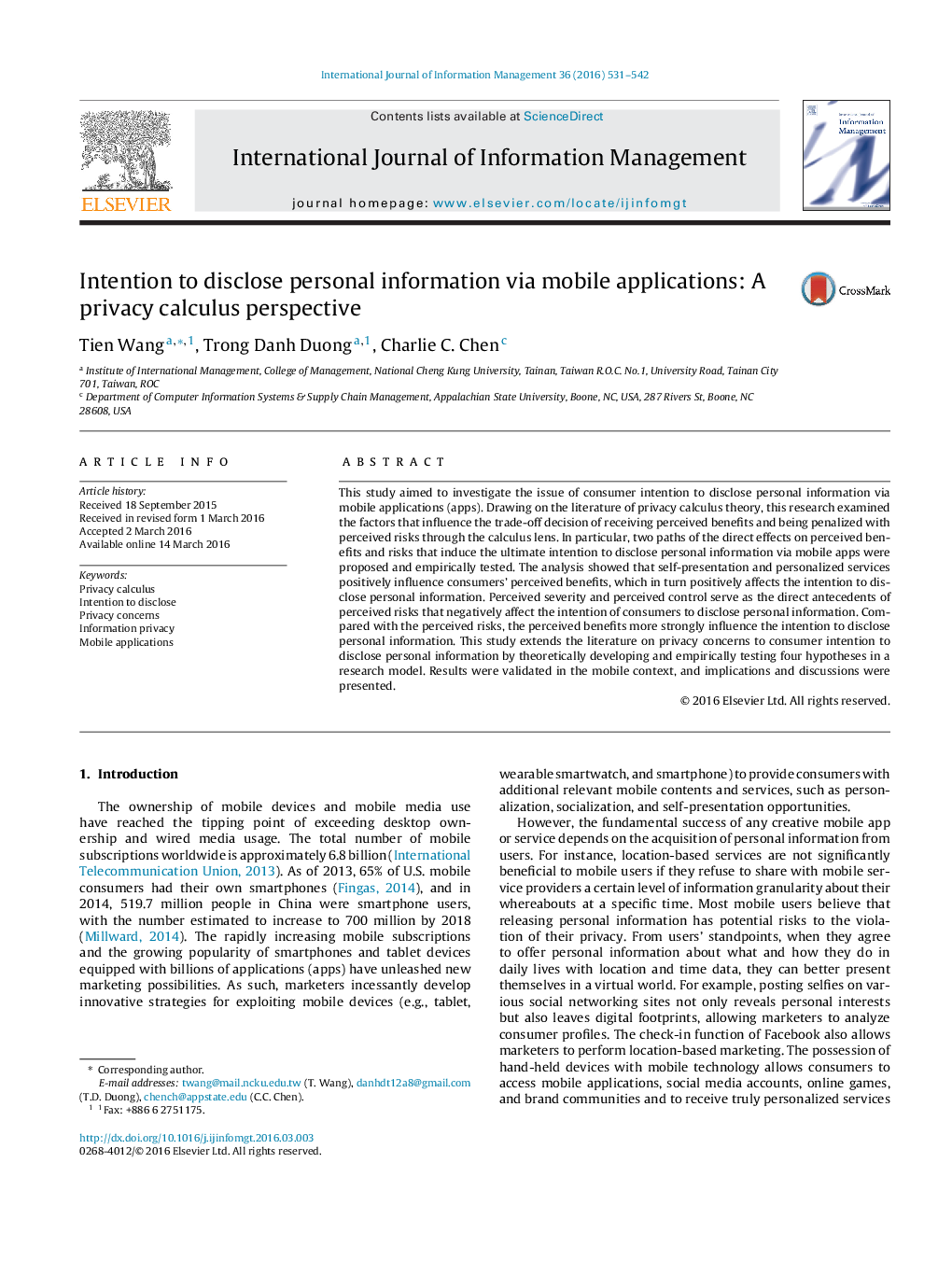| Article ID | Journal | Published Year | Pages | File Type |
|---|---|---|---|---|
| 1025481 | International Journal of Information Management | 2016 | 12 Pages |
•We apply the privacy calculus model to examine intention to disclose via mobile app.•We test perceived benefit and risk as two paths of influence on disclose intention.•Mobile users value benefits more than risks when offering personal information.•Enhanced personalized services inspire mobile users to release privacy data.•Perceived severity discourages mobile users from revealing personal privacy information.
This study aimed to investigate the issue of consumer intention to disclose personal information via mobile applications (apps). Drawing on the literature of privacy calculus theory, this research examined the factors that influence the trade-off decision of receiving perceived benefits and being penalized with perceived risks through the calculus lens. In particular, two paths of the direct effects on perceived benefits and risks that induce the ultimate intention to disclose personal information via mobile apps were proposed and empirically tested. The analysis showed that self-presentation and personalized services positively influence consumers’ perceived benefits, which in turn positively affects the intention to disclose personal information. Perceived severity and perceived control serve as the direct antecedents of perceived risks that negatively affect the intention of consumers to disclose personal information. Compared with the perceived risks, the perceived benefits more strongly influence the intention to disclose personal information. This study extends the literature on privacy concerns to consumer intention to disclose personal information by theoretically developing and empirically testing four hypotheses in a research model. Results were validated in the mobile context, and implications and discussions were presented.
